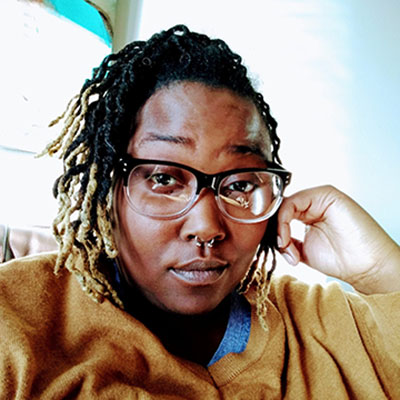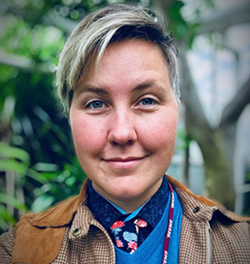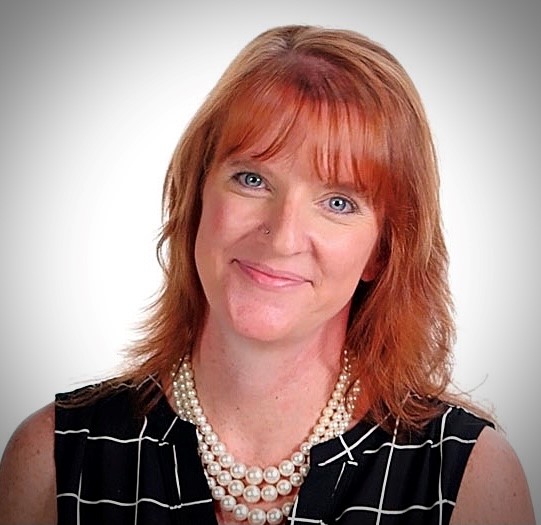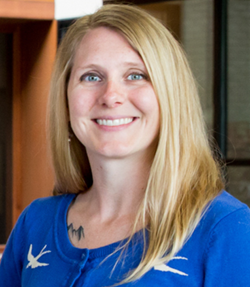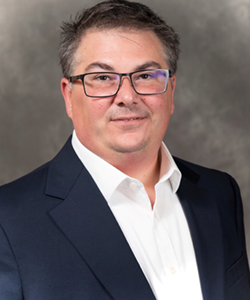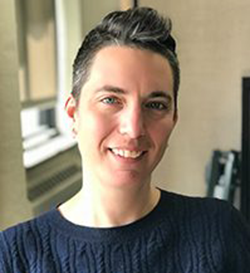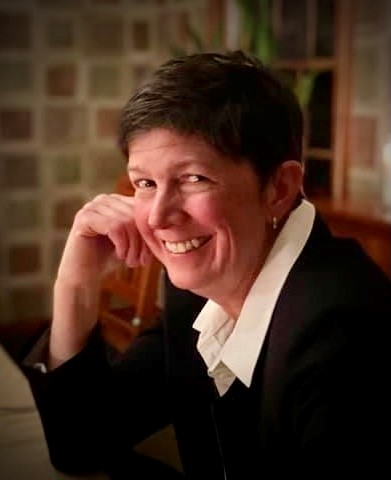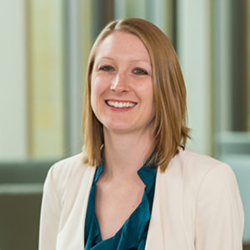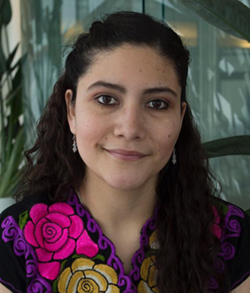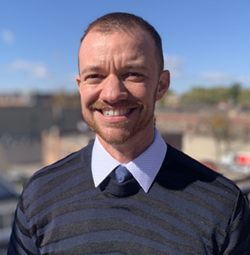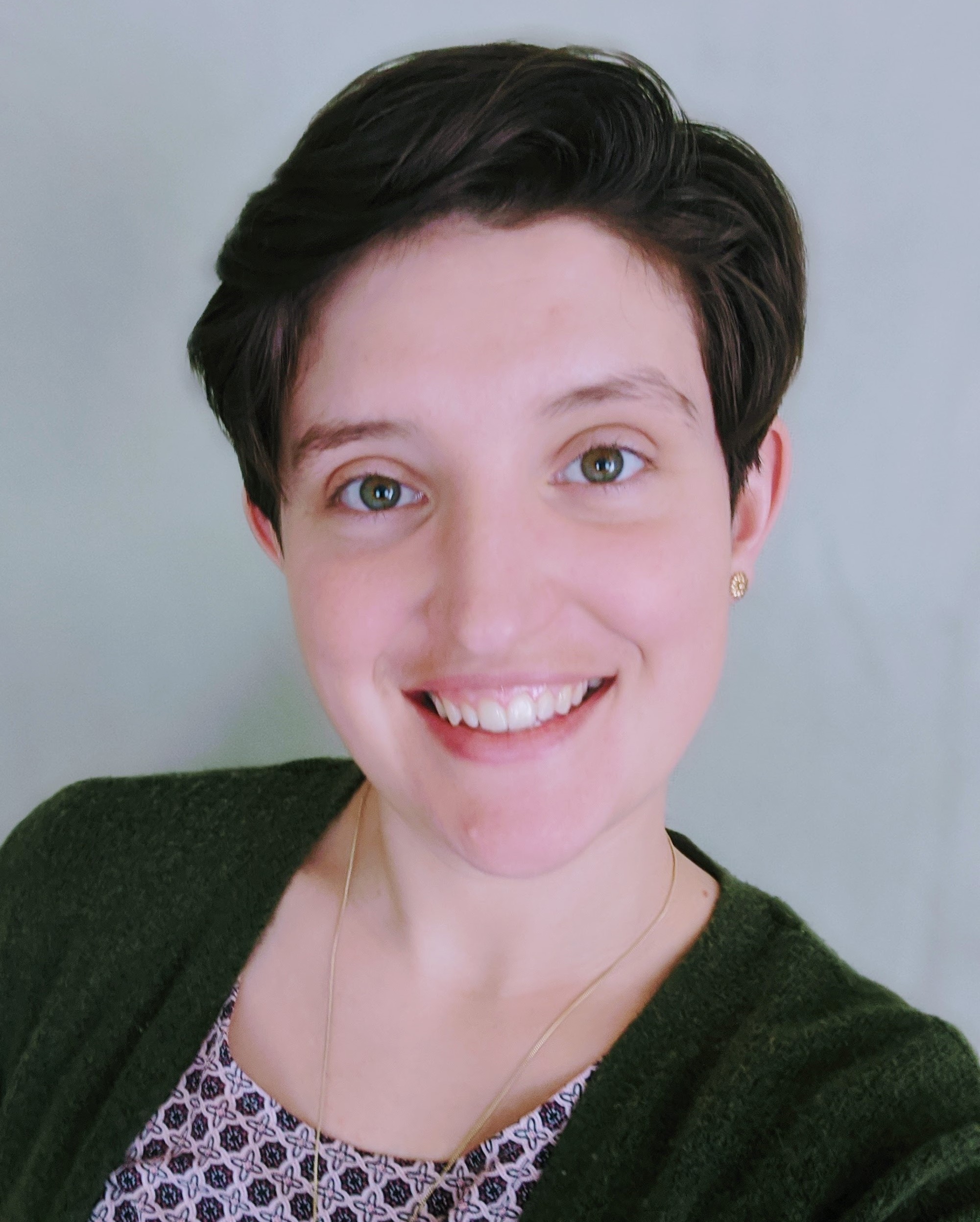
2021 Wisconsin LGBTQ+ Health Summit
The summit is FREE for students.
Join us at the VIRTUAL Wisconsin LGBTQ+ Health Summit
We invite healthcare practitioners, faculty, students, and members of the wider LGBTQ+ community to attend this unique conference. Connect and network with thought leaders and each other as we explore how to build an inclusive and just culture of health.
This LIVE summit strives to educate and engage the health professions about LGBTQ+ health and create new pathways to serve LGBTQ+ communities. You will find community and support here as well as the latest best practices for improving LGBTQ+ health outcomes. We promise this experience will inspire you!
Practice Gap and Needs
Healthy People 2020 calls us to “Improve the health, safety, and well-being of lesbian, gay, bisexual, and transgender (LGBT) individuals.” One critical step toward accomplishing this goal is to ensure that the healthcare team has the necessary knowledge and skills to provide evidence-based, person-centered care to members of the LGBTQ+ community.
According to recent literature:
- Over half of LGBT physicians have heard derogatory comments from other healthcare professionals and about a third have witnessed discrimination of patients who are LGBT.
- More than a third of US medical schools in 2011 reported 0 hours of LGBT-specific content. Seven of the top ten nursing journals did not publish any articles related to LGBT issues from 2005-2009.
- One-third to two-thirds of nursing faculty have never taught LGBT health-related topics in the previous two years.
- Approximately three-fourths of nursing educators feel unprepared to teach LGBT content; over three-fourths had not received training in LGBT health-related topics (Bonvicini 2017).
- Many LGBT patients would feel more comfortable with providers who are specifically trained in LGBT patient needs (AARP 2018).
Members of the healthcare team and academics will benefit from increasing their knowledge of unique health factors within the LGBTQ+ community, best practices for improving patient outcomes, and how to advocate for this population.
Elements of Competence
This educational activity is designed to change learner competence in the following areas:
- The American Board of Medical Specialties: Medical knowledge, interpersonal and communication skills, professionalism and systems-based practice
- Institute of Medicine: Patient-centered care, working in interdisciplinary teams, and evidence based medicine
- Pharmacist (ACPE): Cultural sensitivity, patient advocacy, and population-based care, and
- Nursing and Interprofessional: Values/ethics for interprofessional practice, roles/responsibilities, and interprofessional communication
Learning Objectives
- Describe strategies and unique factors for serving LGBTQ+ communities.
- Explain best practices to advocate and improve LGBTQ+ health outcomes
- Develop strategic collaborations to support ongoing, post-summit learning by attending interactive workshops, sessions, and a networking opportunity
Intended Audience
This activity is designed for nurses, physicians, social workers, pharmacists, psychologists, faculty, staff, students in the healthcare professions, LGBTG+ community members and others interested in healthcare for LGBTQ+ populations.
Agenda
Friday, April 9, 2021
9:00 AM-4:00 PM CST
| Time | Session & Description | Learning Objectives | |||
| 9:00-9:30 AM CST | WELCOME***No continuing education credit is being offered for the Welcome session. | ||||
| 9:30-10:45 AM CST | PRE-SUMMIT WORKSHOPS | ||||
The ABCs of LGBTQ+ and Gender Minority Inclusive Education: Addressing the Need, Building the Skills, Championing the Importance ~ Elizabeth Petty, MD Health care providers and educators must be both competent and caring when serving individuals from LGBTQ+ and gender minority populations to optimize their well-being. In this workshop participants will engage in safe skill building exercises, including discussion of relevant case studies, to help them develop skills, tools, and knowledge about resources that they may utilize to best support individuals who are sexual and gender minorities. | 1. Describe the importance of using appropriate LGBTQ+ and gender inclusive language. 2. Discuss concepts of and intersections between sexual orientation, gender identity, and gender expression. 3. Demonstrate correct pronoun use for all individuals in classroom, laboratory, community, and clinic settings as well as in education and program materials. 4. Identify existing gaps in LGBTQ+ and gender inclusive practices in your area of work, education, or practice. 5. Describe two things you could do to help address those gaps and promote an LGBTQ+ and fully gender inclusive work and learning environment. | ||||
Ready Player 101 or the Terrain for LGBTQ+ Populations ~ Warren Scherer, MPH During this workshop, participants will be introduced to and explore the identities, experiences, and needs of transgender, bisexual, lesbian, gay, queer, plus (+) populations. The workshop will conclude with discussion of supporting LGBTQ+ populations through and beyond "allyship", with time for Q & A. | 1. Recognize the identities, experiences, and needs of transgender, bisexual, lesbian, gay, queer, plus (+) populations. 2. Discuss ways to support LGBTQ+ populations through and beyond "allyship". | ||||
TGNC Caucus: Health Needs & Organizing Strategies ~ Katherine Charek Briggs, MA, MSIS This caucus session is intended for TGNC people to connect with each other in a closed space. We will hear from the group to determine our own and our community health and wellness needs and then strategize on priorities and next steps. What can we do in the next six months? What do we need longer term? Representatives from the Wisconsin Transgender Health Coalition and the UW-Madison trans health work group will offer clarity on current health policy, bring next steps back to their groups, and help folks in the room make connections to services and partners they need. | 1. Establish community connection with other trans professionals and community members . 2. Contribute to a collaborative list of needs, priorities, and action steps to advance trans health. | ||||
| 11:00 AM-12:00 PM CST | PLENARY SESSION | ||||
What Next?: A Crowd-sourced and Collaborative Keynote Featuring Our Collective Ideas for Liberatory Queer Health Futures | 1. Describe the failures of current systems and government in the service of health care 2. Discuss our role in designing liberatory queer health futures. | ||||
| 12:30-1:30 PM CST | CONCURRENT SESSIONS | ||||
Sexual Health and Disparities in the LGBTQ+ Community ~ Amy Perez, BSN Senior Undergraduate Develop a deeper understanding of the health needs of LGBTQ+ individuals and the challenges they face when trying to access sexual health services. These challenges are linked to stigma, discrimination, structural inequities and social determinants of health. In this session we will discuss the incidence, prevalence, and risk factors of Sexually Transmitted Infections (STIs) among LGBTQ+ individuals. You will learn the current recommendations from the CDC for STI prevention, testing, treatment and follow-up for LGBTQ+ patients. Additionally, you will learn how to collect sexual health data from patients in a respectful and culturally appropriate manner while motivating and empowering them. Learning this will allow you not only to provide excellent patient care, but also to develop trusting relationships with your LGBTQ patients and work to eliminate health disparities. | 1. Describe the Social Ecological Model and how the 5 Social Determinants of Health impact patient outcomes 2. Define intersectionality and how to use its framework to understand the patient’s clinical picture and barriers to access to care 3. Explain the Center for Disease Control and Prevention’s STI prevention and treatment guidelines for LGBTQ+ humans 4. Discuss non-judgemental and motivational interviewing during sexual and reproductive care visits | ||||
Developing LGBTQ Patient-Provider Relationships: Two Research Examples Patient-provider relationships, LGBTQ+ identity, and end-of-life discussions ~ Madison VanderHill, BSN Senior Undergraduate & Kristen Pecanac, PhD, RN Learning from Transmasculine Experiences With Healthcare: Tangible Inlets for Reducing Health Disparities ~ Nickolas Lambrou, PhD At the inaugural LGBTQ+ Health Summit, many attendees shared in a survey how they relate to their provider and what they look for in their provider. Interactions between healthcare providers and LGBTQ+ individuals have been shown to be critical to the care they receive and how LGBTQ+ individuals plan for care at the end of life. We will share the results of the study and discuss the importance of empowering nurses and providers to use communication strategies that enhance patient participation and allow patients to tell their own story. | Patient-provider relationships, LGBTQ+ identity, and end-of-life discussions 1. Discuss how patient-provider relationships can be improved in clinical settings 2.Examine how patient-provider relationships can impact end-of-life care for LGBTQ+ populations Learning from Transmasculine Experiences With Healthcare: Tangible Inlets for Reducing Health Disparities 1. Describe historical relationships between medical models and transgender and gender diverse (TGD) embodiment, consequences of medicalizing gender, and sources of stress and resilience. 2. Discuss how patient-provider relationships can be improved in clinical settings. | ||||
Anti Transgender and LGBT Actions ~ Ginger Baier The current administration has made it a goal to remove transgender people from American society by changing the rules in most government agencies, like HHS, education, and the military. | 1. Identify the policy changes occurring over the past 5 years in the US that have impacted health and healthcare for LGBTQ communities. 2. Forecast LGBTQ health-related policy changes and agendas on the horizon. | ||||
Gender Services: The Role of an RN Navigator ~ Emily Smith, RN and K8 Walton, RN, BSN UW Health Gender Services Program is pleased to submit this proposal to present at the 2020 WI LGBTQ+ Health Summit. Our goal is to educate students, nurses, healthcare providers and patients on the specific roles and responsibilities of a nurse navigator in a gender services program. UW Health is one of the few comprehensive gender services programs in the United States and the nurse navigator role is a new one that will continue to evolve to meet the specific needs of the transgender and gender non-conforming community. This session would provide an in depth look at the unique and versatile nursing role that expands beyond patient care and looks at an organization as a whole and the education and policy changes that need to take place for lasting system change. | 1. Describe the nurse navigator role in a gender services program. 2. Identify the organizational education and policy changes needed to support a nurse navigator program. | ||||
Does My Insurance Have to Cover Transition-Related Care? ~ Alina Boyden & Rainer Rosilez, University of Wisconsin–Madison QLaw Student The law is currently in a state of flux as to trans persons' rights to insurance coverage for transition-related care. This presentation will outline the current law, identify areas for advocacy, and provide practical advice for obtaining insurance coverage. | 1. Discuss obtaining and using insurance coverage for gender-related services. 2. Outline basic legal requirements for and limits on insurance coverage of gender-related services. 3. Describe ways that health care providers and other stakeholders can advocate for insurance coverage for gender-related services. | ||||
| 1:45-2:45 PM CST | CONCURRENT SESSIONS | ||||
Growing Up QPoC (Queer Person of Color) - What We Wish Our Health System & Families Had Told Us ~ Natalia Hildner, MA and Alex Booker, MA The invisibility and isolation that many Queer People of Color can experience growing up puts them at an extra high risk of physical and mental danger. There have been some advances towards inclusivity of queerness in some institutions at some level but this does not mean that these very inclusivity measures will also connect or be able to also include QPoC. The barriers that we have faced and our needs as QPoC's growing up is very little understood by both the white queer and PoC communities. As a Latinx and Black QPoC presenters, we hope to share our intimate experiences of multiple health systems and the gaps which we have miraculously been able to survive. | 1. Describe and value the needs and barriers of QPoC in multiple health systems. 2. Identify inadequacies of advances towards inclusivity of queerness in some institutions to connect to or include QPoC. | ||||
Trans-forming Healing Spaces: Tips and Considerations in Creating Trans-affirming Spaces ~ Elliot Tebbe, PhD, LP and Stephanie Budge, PhD This session will focus on how to make healing spaces as welcoming as possible for transgender and nonbinary patients/clients. Healing spaces are defined as: any health care space that a patient/client will interact with (e.g., waiting rooms, therapy offices, medical offices, hallways, paperwork, virtual appointments, websites). We will provide practical tips to provide cues for affirming spaces and for patient/client interactions with their providers in spaces. | 1. Define healing spaces 2. Identify practical ways to provide cues for affirming spaces | ||||
LGBTQ+ Youth: Risk and Protective Factors ~ Robin Matthies, MSW This presentation will provide an overview of LGBTQ definitions, and terms to allow people to have a foundational understanding of acronyms, definitions, and terminology. There will be interactive aspects where I'll ask audience members to engage with certain posed questions as a way to share unique experiences. I will share LGBTQ youth specific data that highlights risk behaviors and health outcomes to showcase disparities between LGBTQ youth and their non-LGBTQ identified peers. Finally, we will collectively discuss ways to create safe and welcoming spaces for LGBTQ youth, protective factors, and ideas for specific advocacy efforts both individually and collectively. | 1. Describe at least 2 elevated risk factors for negative mental, and behavioral health outcomes experienced by LGBTQ youth. 2. Identify at least 2 protective factors for mental, and behavioral health that LGBTQ youth have. 3. Discuss at least one new idea for improving mental, social, and behavioral health outcomes among LGBTQ youth. | ||||
The Story of OutHealth Inc: It’s not about Us
| 1. Discuss the complexities of private and public health insurance companies and how those complexities disproportionately impact the LGBTQ+ community 2. Apply lessons learned by Dr. Kathy and Nurse Melisa in caring for trans and non-binary humans to better advocate in their own work and educational settings 3. Reflect on their own professional journeys regarding professional purpose meaning and humility
| ||||
Veterinary Medicine and the Human Animal Bond in the LGBTQ+ Community ~ Kelly Schultz, MS, DVM and Levi Sable The human-animal bond plays an important role across the spectrum of human experience, but that bond can be experienced differently in the lives of folks from marginalized communities. This session will be an overview of the literature surrounding LGBTQ+ use of veterinary services and of the human-animal bond as experienced by members of the LGBTQ+ community. | 1. Discuss and value the importance of the human-animal bond among LGBTQ communities and families | ||||
| 3:00-4:00 PM CST | PLENARY SESSION | ||||
Call me ill ~ T. Banks T. Banks will be performing spokenword poems from his Chapbooks and new collection of poetry that specifically addresses the harm of the medical industrial complex on Black, Trans, Queer and Disabled people seeking treatment for chronic illness. He will be reading from poems of his unique experience in healthcare and fighting for wellness as a Black, Trans, Queer and chronically ill person. | 1. Discuss the harm of the medical industrial complex on Black, Trans, Queer and Disabled people seeking treatment for chronic illness 2. Explain how the use of poetry can illustrate the fight for wellness for a Black, Trans, Queer & Chronically ill person. | ||||
| 4:00-5:00 PM CST | Virtual NetworkingTHE AFRICAN AMERICAN HEALTH NETWORK ***No continuing education credit is being offered for the Virtual Networking session. | ||||
PROGRAM CHANGES
Emergency situations occasionally occur and may necessitate topic or speaker changes. The University of Wisconsin School of Nursing and the University of Wisconsin–Madison ICEP reserve the right to alter or substitute a topic or speaker without prior notification.
REQUIRED HARDWARE/SOFTWARE
Free, current version of Chrome, Firefox, Safari, or Microsoft Edge with audio and video capabilities. Some older browsers and Microsoft Explorer could produce error messages or not display the content correctly.
SPEAKERS
Keynote Speakers
T. Banks, Disability Justice and Mental Wellness Advocate, Poet and Playwright | T. Banks is disability justice and mental wellness advocate, poet and playwright from Madison, WI. A First Wave Scholar and graduate of UW Madison. T. recently launched his own Black, Queer, and Trans* led arts company called Loud ‘N UnChained Theater Co. Which is also home to LNU Black Theater Festival Premiering 2021. As a Black, trans and queer person with a disability, T believes the movement for Black Lives must be intersectional and deeply connected to the struggle to end patriarchy, specifically as it manifests as violence against Black trans folks. His work addresses the need for the black liberation movement to be accessible to those with mental wellness challenges and/or physical disabilities as well as fight for the ability of these populations to regain their autonomy outside of this capitalist society |
Rae Walker, PhD, RN, Assistant Professor and Director of the PhD Program at the University of Massachusetts Amherst College of Nursing | Rae Walker, PhD, RN (they/them) is a non-binary and Queer associate professor of nursing and the first nurse inventor to serve as an Invention Ambassador for the American Association for the Advancement of Science. They direct the Nursing PhD Program at the University of Massachusetts Amherst, where they also co-direct a translational science center specializing in critical analysis and co-creation of A.I., sensors, and mHealth. Their scholarship focuses on equity-centered and emancipatory approaches to innovation, community digital defense, and the co-creation of environments that promote health and justice in the context of symptom-related disability, medical gaslighting, and the matrix of domination. They’ve consulted on policy for the U.S. Patent & Trademark Office, White House, UnitedHealth, and other industries. They are an active collaborator in the Design Justice Network, research committee co-chair for the National Nursing LGBTQ+ Health Summit, creator of the Critical Perspectives department of the journal Oncology Nursing Forum, co-founder of the collective Nursing Mutual Aid, and on the advisory board for Transhealth Northampton. Their children describe them as “kind, cute…and big”. They live on unceded lands of the Nipmuc nation in Northampton, Massachusetts with their partner, children, house cats Guff and Smidge, barn cats Steel and Beardy, 4 guinea pigs whose names change constantly though one is reliably called “Flashlight”, and 4 very judgmental chickens. |
Session Speakers
Melisa Arndt, LPN, Out Health, Inc. | Melisa Arndt, LPN is a fierce advocate for LGBTQ+ people as well as those who struggle with substance. Nurse Arndt came to nursing as a later career after serving in the military, parenting, working as an EMT, a health unit coordinator and a variety of other career journeys. Melisa resigned from UW Health—Northeast to pursue additional educational opportunities, then joined Dr. Oriel as Out Health’s practice manager and sole nurse soon there-after. Melisa’s passion for social justice reached beyond her official job duties when she served as the Leader for Wisconsin's Free Mom Hugs Chapter. Melisa is also active in volunteering in her faith community. |
Stephanie Budge, PhD, Associate Professor, University of Wisconsin–Madison, School of Medicine and Public Health, and Director of Advancing Health Equity and Diversity (AHEAD) program University of Wisconsin–Madison | Stephanie Budge, PhD (she/her/hers) is an Associate Professor in the Department of Counseling Psychology at the University of Wisconsin-Madison and the director of the Advancing Health Equity and Diversity (AHEAD) program in the School of Medicine and Public Health at UW-Madison. Her research and advocacy efforts focus on transgender and gender diverse people. Her research specifically focuses on emotional and coping processes for transgender youth and adults, as well as the effectiveness of medical and psychotherapeutic treatments for transgender clients. She provides clinical trainings nationally and internationally related to LGBTQ issues, focusing on practitioners’ self-efficacy, knowledge, awareness, and skills. At the University of Wisconsin, she promotes transgender advocacy on campus by providing workshops to students, faculty, and staff related to navigating gender identity within a university environment. As a licensed psychologist, she also provides clinical services to transgender youth and adults. Stephanie was recently named a 2030 Impact Faculty Fellow in the School of Education to continue community engaged research with LGBTQ populations. |
Nickolas Lambrou, PhD | Nickolas H. Lambrou, PhD (he/him/his) is an Advanced Postdoctoral Fellow with the Madison VA Geriatric Research Education and Clinical Center (GRECC). He holds a doctoral degree in counseling psychology, and has experience providing clinical psychotherapy for Veterans with PTSD. His research addresses relationships between identity development, resilience, minority stress, social determinants of health, and cognition across the lifespan within underserved populations. Dr. Lambrou has expertise in qualitative methods and Community Based Participatory Research with transgender and non-binary populations, as well as Native American and Indigenous populations. Primary Mentors: Carey E. Gleason, PhD & Jason Flatt, PhD |
Robin Matthies, MSW, Trauma and Resilience Program Manager, Wisconsin Department of Health Services and | Robin Matthies, MSW (she/her/hers) is the Director of Public and Behavioral Health Integration with the Association of State and Territorial Health Officials (ASTHO). She has many areas of interest in public health, with specific expertise in suicide prevention, and how adversity in childhood impacts health outcomes across the life span. Robin has provided multiple trainings both statewide and nationally on adverse childhood experiences (ACEs), creating trauma-informed workplaces, , health equity, and LGBTQ+ specific topics. For many years she volunteered as a crisis counselor for LGBTQ youth who are struggling with suicidal ideation, self-harm, and other risk behaviors. Robin received her MSW from UW-Madison with a focus on children, youth, and family policy. |
Kathy Oriel, MD, MS, Out Health, Inc. | Kathy Oriel, MD, MS is a family physician and addiction medicine physician. She has cared for and advocated for LGBTQ+ people throughout her 20 year medical career. Most recently she founded a non-profit in Madison, Out Health, Inc. Out Health works to eliminate health disparities for LGBTQ+ people through education, advocacy and competent, compassionate care in a small private setting. Dr. Oriel presents locally and nationally regarding LGBTQ+ health and is a Past Board Member and President of the Gay and Lesbian Medical Association. Dr. Oriel serves as an expert witness in legal cases involving care for transgender people, including the favorable 2020 Campbell v Kallas and Jackson v Kallas in Federal District Court. |
Kristen Pecanac, PhD, RN, Assistant Professor, University of Wisconsin–Madison, School of Nursing | Kristen Pecanac, PhD, RN explores interactions among health care providers, patients and family members when making decisions related to treatment in her research. Her intent is to identify communicative practices that promote patient and family participation in decision-making and incorporate these practices into an intervention. The ultimate goal of this research is to facilitate engagement in productive conversations that will lead to reduced stress and suffering for patients and their family members. |
Amy Perez, Nursing Student and Student Representative, University of Wisconsin–Madison School of Nursing | Amy Perez is a queer activist from Madison, Wisconsin. She is a senior nursing student at the University of Wisconsin-Madison and is completing a minor in Chican@ & Latinx studies. As an undergrad, the Obama administration awarded her the President’s service medal in recognition for 200+ hours of volunteer service for Planned Parenthood. To support her education, Amy works as a Student Nursing Assistant (SNA) at UW Hospital in the Burn ICU and as a student supervisor at The Sett Pub-Union South. During her spare time, she volunteers at the Catholic Multicultural Center and Planned Parenthood. Amy is the president of the Nurses Sin Barreras student organization at the Nursing school. Amy intends to become a Sexual Assault Nurse Examiner to help victims of sexual violence after graduation. Amy’s goal is to become a Midwife and a Women’s Health Nurse Practitioner. Eventually, she plans to obtain a DNP in psychiatry & mental health. Amy has devoted her life to serving and empowering underserved and marginalized communities. |
Elizabeth Petty, MD, Senior Associate Dean for Academic Affairs, University of Wisconsin School of Medicine and Public Health | Elizabeth M. Petty, MD is the senior associate dean for academic affairs, the medical director of the genetic counselor training program, and a professor of pediatrics at the University of Wisconsin School of Medicine and Public Health (UW-SMPH). At UW-SMPH she oversees health professional degree programs, including those for MD, PA, PT, GC, and MPH students, and helps guide the academic missions of GME, CME, global health, and learner diversity programs. Dr. Petty received her B.A. in art history and human biology at Clarke University, Dubuque, Iowa, went to medical school and completed pediatric residency training at the University of Wisconsin, and did postdoctoral training in genetics at Yale University. As an ACMGG board certified geneticist, she cares for patients and families with genetic conditions. Prior to joining the faculty at UW-SMPH, Dr. Petty was a professor of internal medicine and human genetics at the University of Michigan Medical School (UMMS) where she served in multiple leadership roles and enjoyed teaching and mentoring learners in the classroom, the clinic, and her cancer biology research laboratory. During her career, she has helped champion the development and implementation of innovative curricula, enhance admissions and student service programs, build initiatives to promote equity and inclusion, launch new research programs, and foster partnerships to promote health equity and science literacy. She has been both an ELAM and an AAMC Council of Deans fellow, as well as a founding member of the Kern National Network medical school consortium to promote caring and character in academic medicine. She has published numerous manuscripts and was one of the senior editors of the recently published textbook, The Equal Curriculum: The Student and Educator Guide to LGBTQ Health. Currently, Dr. Petty enjoys engaging others in research and quality improvement projects relevant to education, equity, clinical care, and human genomics. She enjoys working with teams to build high quality innovative health professional degree programs, strengthen academic health system education partnerships, and drive strategic planning processes to guide academic missions. She helps oversee a multifaceted school-wide interprofessional process to create a highly inclusive and respectful academic community across UW-SMPH. Dr. Petty passionately embraces opportunities to shape the future of academic medicine through optimizing a nurturing learning environment, promoting lifelong learning and discovery, championing equity and inclusion initiatives, and creating strong partnerships to optimize health outcomes for individuals, families, and communities. |
Warren "War" Scherer, MPH, Assistant Dean & Director, University of Wisconsin–Madison, Gender & Sexuality Campus Center | Warren "War" Scherer has been at UW-Madison since Jan. 2018. War previously worked at the UW-Milwaukee LGBT+ Resource Center and at Project Q, the Milwaukee LGBT Community Center’s youth program. War also served for four years on the board of the Consortium of Higher Education LGBT Resource Professionals, including two as co-chair. Look out for War thoughts in the Missive from the Mx in the CC newsletter. |
Elliot Tebbe, PhD, LP, Assistant Professor, University of Wisconsin–Madison, School of Nursing | Elliot Tebbe, PhD, LP (he/him/his) is an Assistant Professor in the School of Nursing at UW-Madison. A counseling psychologist by training, Elliot’s research, scholarship, and area of clinical practice centers primarily on understanding factors that contribute to mental health disparities and promoting well-being in trans and gender expansive communities. He is also interested in the impact of policy in shaping health outcomes and behaviors, and he is passionate about advancing advocacy efforts to better meet the needs of trans and gender expansive individuals within healthcare systems. |
Madison Vander Hill, RN | Madison Vander Hill, RN is an alumna of UW Madison School of Nursing (2020). At the UW School of Nursing, she did her honors research with Dr. Kristin Pecanac, exploring LGBTQ+ patient narratives and experiences discussing end-of-life care with their providers. She currently works as a postpartum RN at a local hospital in Madison, WI. |
ADDITIONAL SPEAKERS
Ginger Baier | Katherine Charek Briggs, MA, MSIS | Emily Smith, BSN, RN |
| Alex Booker, MA | Natalia Hildner, MA | K8 Walton, RN, BSN |
| Alina Boyden | Kelly Schultz, MS, DVM |
PLANNING COMMITTEE MEMBERS
| Mel Freitag*, PhD Diversity Officer, University of Wisconsin–Madison, School of Nursing | Madelyne Greene, PhD, RN Assistant Professor, University of Wisconsin–Madison, School of Nursing | Amy Perez University of Wisconsin–Madison Nursing Student Representative University of Wisconsin–Madison, School of Nursing |
| Stephanie Budge, PhD Advancing Health Equity and Diversity (AHEAD) program and Department of Counseling Psychology, University of Wisconsin–Madison | Molly Herrmann, MS Humble Pie Consulting, LLC | Parvathy Pillai, MD, MPH |
Haley Burkhardt, MS | Karen Kopacek, RPh University of Wisconsin–Madison, School of Pharmacy | Meredith Temple University of Wisconsin–Madison, School of Nursing |
| Sarah Glodich University of Wisconsin–Madison, School of Nursing | Robin Matthies, MSW Wisconsin Department of Health Services and University of Wisconsin–Madison, School of Social Work | Julie Woods University of Wisconsin–Madison PRIDE Medical Student University of Wisconsin–Madison, School of Medicine and Public Health |
| Rachel Goldberg, MPH Public Health Madison & Dane County | Kristen Pecanac, PhD, RN Assistant Professor, University of Wisconsin–Madison, School of Nursing |
*Summit Director
HOSTS, MODERATORS, AND TECHNOLOGY ASSISTANTS
| Haley Burkhardt, MS University of Wisconsin–Madison School of Nursing | Tess Jewell University of Wisconsin–Madison Medical Student | Parvathy Pillai, MD University of Wisconsin–Madison School of Medicine and Public Health |
| Kelsey Christianson University of Wisconsin–Madison Medical Student | Caden Lambie University of Wisconsin–Madison Medical Student | Meredith Temple University of Wisconsin–Madison School of Nursing |
| Crystal Dyer University of Wisconsin–Madison Medical Student | Jordan Langer University of Wisconsin–Madison School of Nursing | Kat Tippins University of Wisconsin–Madison Nursing Student |
| Shelby Foss University of Wisconsin–Madison Nursing Student | Maya Muldowney University of Wisconsin–Madison Medical Student | Thomas Schrauth University of Wisconsin–Madison Medical Student |
| Mel Freitag, PhD University of Wisconsin–Madison School of Nursing | Lauren Nguyen University of Wisconsin–Madison Medical Student | Kayla Van Boxtel University of Wisconsin–Madison Nursing Student |
| Madelyne Greene, PhD, RN University of Wisconsin–Madison School of Nursing | Kristin Pecanac, PhD, RN University of Wisconsin–Madison School of Nursing | Dani Widmann University of Wisconsin–Madison Medical Student |
| Maica Ho University of Wisconsin–Madison Nursing Student | Amy Perez University of Wisconsin–Madison Nursing Student | Meghan Zander University of Wisconsin–Madison Medical Student |
POLICY ON DISCLOSURE
It is the policy of the University of Wisconsin–Madison Interprofessional Continuing Education Partnership, that the faculty, authors, planners, and other persons who may influence content of this CE activity disclose all relevant financial relationships with commercial interests in order to allow CE staff to identify and resolve any potential conflicts of interest. Faculty must also disclose any planned discussion of unlabeled/unapproved uses of drugs or devices during their presentation(s). Detailed disclosures will be made in the activity materials.
Disclosures will be available prior to the start of the conference.
*The ACCME, ACPE, and ANCC defines a commercial interest as any entity producing, marketing, re‐selling, or distributing health care goods or services consumed by, or used on, patients. The ACCME, ACPE, and ANCC does not consider providers of clinical service directly to patients to be commercial interests.
The University of Wisconsin provides equal opportunities in employment and programming, including Title IX requirements. The University of Wisconsin fully complies with the legal requirements of the ADA and the rules and regulations thereof. If any participant in this educational activity is in need of accommodations, please contact [email protected].
Accreditation Statement
 | In support of improving patient care, the University of Wisconsin–Madison Interprofessional Continuing Education Partnership (ICEP) is jointly accredited by the Accreditation Council for Continuing Medical Education (ACCME), the Accreditation Council for Pharmacy Education (ACPE), and the American Nurses Credentialing Center (ANCC) to provide continuing education for the healthcare team. |
CREDIT DESIGNATION STATEMENTS
AMERICAN MEDICAL ASSOCIATION
The University of Wisconsin–Madison ICEP designates this live activity for a maximum of 5.25 AMA PRA Category 1 Credits™. Physicians should claim only the credit commensurate with the extent of their participation in the activity.
AMERICAN NURSES CREDENTIALING CENTER (ANCC)
The University of Wisconsin–Madison ICEP designates this live activity for a maximum of 5.25 ANCC contact hours. Iowa Board of Nursing accepts ANCC contact hours for nursing continuing education requirements.
Accreditation Council for Pharmacy Education (ACPE)
A maximum of 5.25 hour of knowledge-based CE credit can be earned by successfully completing this live activity. Pharmacists should claim only the credit commensurate with the extent of their participation in the activity. CE credit information, based on verification of live attendance, will be provided to NABP within 60 days after the activity completion.
Universal Activity Number (UAN): JA0000358-0000-21-047-L04-P
ASWB APPROVED CONTINUING EDUCATION (ACE) – SOCIAL WORK CREDIT
As a Jointly Accredited Organization, the University of Wisconsin – Madison ICEP is approved to offer social work continuing education by the Association of Social Work Boards (ASWB) Approved Continuing Education (ACE) program. Organizations, not individual courses, are approved under this program. State and provincial regulatory boards have the final authority to determine whether an individual course may be accepted for continuing education credit. University of Wisconsin – Madison ICEP maintains responsibility for this course. Social workers completing this course receive 5.25 live continuing education credits.
AMERICAN PSYCHOLOGICAL ASSOCIATION (APA)
 | Continuing Education (CE) credits for psychologists are provided through the co-sponsorship of the American Psychological Association (APA) Office of Continuing Education in Psychology (CEP). The APA CEP Office maintains responsibility for the content of the programs. |
CONTINUING EDUCATION UNITS
The University of Wisconsin–Madison, as a member of the University Continuing Education Association (UCEA), authorizes this program for 0.525 continuing education units (CEUs) or 5.25 hours.
Available Credit
- 5.25 ACPE Contact Hours - Pharmacist
- 5.25 AMA PRA Category 1 Credit™
- 5.25 ANCC Contact Hours
- 5.25 APA CE Credits
- 5.25 University of Wisconsin–Madison Continuing Education Hours
- 5.25 Approved for AMA PRA Category 1 Credit™
The summit is FREE for students.
- UW-Madison Student -- Log in with your NetID and your registration will be waived
- Other Students -- Contact Mel Freitag, PhD, Diversity Officer for a free registration coupon code
QUESTIONS ABOUT REGISTRATION
Contact ICEP-Nursing Professional Development
Contact Mel Freitag, PhD, Diversity Officer to request free registration due financial hardship.
Kindly notify ICEP-Nursing Professional Development at least 96 hours prior to the summit to cancel your registration
SUMMIT INFORMATION
Contact Mel Freitag, PhD, Diversity Officer
Required Hardware/software
Free, current version of Chrome, Firefox, Safari, or Microsoft Edge with audio and video capabilities. Some older browsers and Microsoft Explorer could produce error messages or not display the content correctly.

 Facebook
Facebook X
X LinkedIn
LinkedIn Forward
Forward